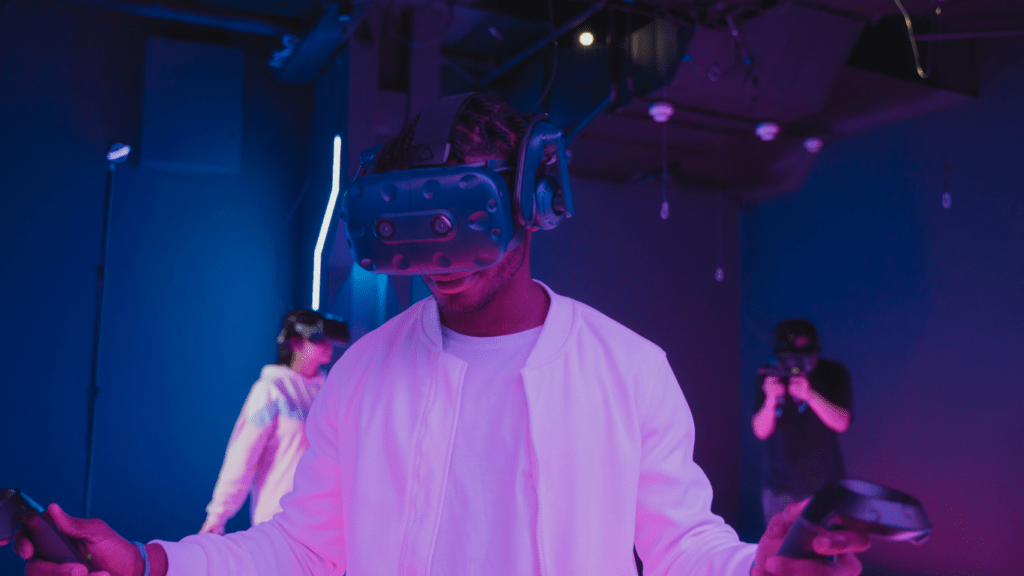In the ever-evolving landscape of gaming, Artificial Intelligence (AI) stands at the forefront, revolutionizing the way we experience interactive entertainment. As a seasoned gamer and tech enthusiast, I’ve witnessed firsthand the transformative power of AI in shaping new gaming titles.
From adaptive NPCs to dynamic environments, AI is redefining player experiences and challenging traditional game development norms. In this article, I’ll delve into the fascinating realm of AI in gaming, exploring how this cutting-edge technology is not just a feature but a driving force behind the creation of immersive and engaging game worlds.
Join me as we uncover the impact of AI on game mechanics, storytelling, and player interactions, and discover how developers are leveraging AI to push the boundaries of creativity and innovation in the gaming industry.
The Role of AI in Modern Gaming
As a gamer deeply entrenched in the world of technology, I’ve witnessed firsthand the transformative power of Artificial Intelligence (AI) in the gaming industry. AI has revolutionized player experiences through cutting-edge features that include adaptive non-player characters (NPCs) and dynamic environments.
This advanced technology has not only refined game mechanics but has also elevated storytelling and player interactions to new heights. Developers are leveraging AI to inject unparalleled creativity and innovation into game development, setting new benchmarks for the gaming landscape.
Advancements in AI Technology
AI technology has dramatically transformed game development, creating more immersive and dynamic gameplay experiences. With continuously evolving AI algorithms, developers now craft intelligent NPCs that adapt to player actions, making every session unique and challenging.
AI has also revolutionized environmental interactions, introducing dynamic settings that react to player decisions, such as procedurally generated worlds and real-time weather systems. As AI continues to advance, the future of gaming promises even greater innovation, with personalized experiences and enhanced interactivity that will reshape the industry for years to come.
AI-Driven Gameplay Features
AI in gaming introduces exciting features that enhance player experiences and revolutionize game development.
Virtual Assistants in Games
Incorporating virtual assistants in games enriches gameplay by providing players with helpful in-game guidance and support. These assistants interact with players, offering tips, hints, and strategies to navigate through challenges, making the gaming experience more engaging and immersive
. By leveraging AI technology, developers can create dynamic virtual assistants that adapt to players’ progress and style, ensuring personalized assistance tailored to individual gaming needs.
Adaptive AI Behavior
One of the key advancements in AI-driven gameplay features is the implementation of adaptive AI behavior. This innovation allows non-player characters (NPCs) to exhibit realistic and human-like responses to players’ actions, creating more dynamic and challenging gameplay scenarios.
Through adaptive AI behavior, NPCs can learn from player strategies, adjust their tactics accordingly, and provide unique challenges in each gaming session. By constantly evolving and adapting to the player’s choices, AI-driven NPCs elevate the gaming experience to new levels of excitement and unpredictability.
AI for Procedural Content Generation
AI’s role in game development is revolutionizing the industry through procedural content generation, allowing for dynamic creation of levels, maps, and missions. This technology not only streamlines the development process but also ensures each gameplay experience is unique and tailored to the player’s actions, enhancing immersion and replayability.
By using AI, developers can design intricate game worlds that adapt in real-time, offering personalized narratives and evolving challenges. As this innovation progresses, it promises to push creative boundaries, delivering richer and more interactive gaming experiences that captivate players and redefine the future of gaming.
Potential Challenges and Ethical Considerations
Navigating the realm of AI in gaming isn’t without its hurdles and ethical considerations. As AI becomes more integrated into game development, several challenges and ethical implications arise that require careful consideration by developers, players, and industry stakeholders.
Let’s delve into some of the key areas of concern:
- Data Privacy: The utilization of AI in gaming often involves the collection and analysis of vast amounts of player data to personalize experiences and enhance gameplay. However, this raises concerns regarding data privacy and how player information is stored, accessed, and potentially shared.
- Algorithm Bias: AI algorithms, if not carefully designed and monitored, can exhibit biases that impact gameplay experiences. From character interactions to decision-making processes, biased algorithms can perpetuate stereotypes or unfair advantages, leading to player dissatisfaction and ethical concerns.
- Player Well-being: The immersive and engaging nature of AI-driven games can sometimes blur the boundaries between virtual and real-life experiences. Excessive gaming, especially with AI features that promote continuous play, can raise concerns about addiction, mental health, and overall well-being.
- Job Displacement: As AI technology advances, there are growing concerns about its impact on the workforce within the gaming industry. Automation of certain game development tasks through AI could potentially lead to job displacement for game designers, testers, and other creative roles.
- Ethical Decision-Making: AI-powered NPCs capable of complex behaviors and interactions introduce the need for ethical decision-making frameworks within games. Player choices and consequences within the game world can reflect real-world ethical dilemmas that raise questions about the moral implications of in-game actions.
- Regulatory Compliance: With the evolving landscape of AI in gaming, regulatory bodies are also faced with the challenge of defining standards and guidelines for the ethical use of AI in game development. Ensuring compliance with regulations regarding data protection, fair algorithms, and player well-being is essential to foster a sustainable and ethical gaming environment.
Addressing these challenges and ethical considerations proactively is essential to harnessing the full potential of AI in gaming while upholding ethical standards and player well-being. By fostering transparency, inclusivity, and responsible innovation, the gaming industry can navigate these complexities and continue to push the boundaries of gaming experiences powered by artificial intelligence.




